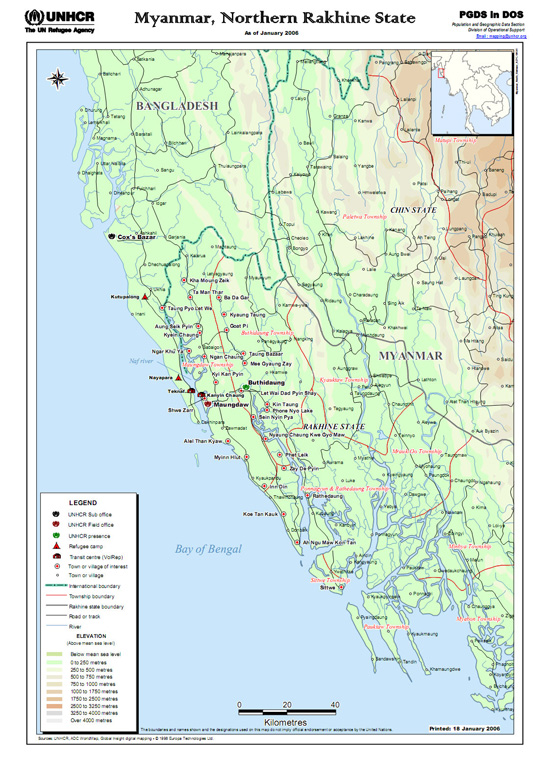Burmese officials on Tuesday said thousands of security officers are trying to restore order in western Rakhine State, in the midst of escalating clashes between Rakhine Buddhists and Rohingya Muslims.
A spokesman for Rakhine State, Win Myaing, told the Voice of America (VOA) Burmese Service the situation was under control, but local activists and aid groups on Tuesday reported renewed fighting. Details from the remote area are hard to confirm.
Humanitarian and human rights groups this week have issued dire warnings, calling for Burmese officials to take effective actions to end the violence, which first broke out in June.
Phil Robertson, deputy Asia director for Human Rights Watch, says the government response was slow and inadequate.
“It's very very worrisome that the government cannot get this situation under control,” he said, in the VOA report. “And, part of it I think is that they don't yet have the political commitment to address the root causes of these problems which is the discriminatory policy against the Rohingya that keeps them in such a helpless situation but also the growing movement towards de facto segregation with Rohingya increasingly confined to Internally Displaced Persons camps.”
UN officials this week cited government figures showing the Rohingya suffered the brunt of attacks from the past week of fighting.
More than 27,000 Muslims were pushed out of their homes and some 4,000 homes burned. Entire Muslim villages were burned to the ground.
Many Rohingya fled the coast of Rakhine State by boat and made their way to crowded camps in the capital Sittwe.
Maeve Murphy, head of the U.N. refugee agency's office in Sittwe, was quoted as saying the local aid agencies do not have enough supplies and are struggling to meet the refugees needs.

“Obviously, they're very terrified,” she said. “It is very difficult, considering the number of incidents that are taking place.”
Murphy said aid groups, which themselves have received threats from extremist groups, are working with the government to get more supplies and to distribute food and temporary shelters.
Some Rohingya, who speak a dialect of Bengali, tried to flee to Bangladesh for safety, but the border is closed, despite appeals from the UNHCR to authorities in Dhaka.
Robertson said the Organization of Islamic Cooperation should put more pressure Bangladesh on the issue.
“The actions by Prime Minister Sheikh Hasina and her government towards the Rohingya are nothing short of shameful," said Robertson. “The OIC should be calling out its member Bangladesh for failing to provide basic protections for these fleeing Muslim Rohingya. You know, Bangladesh is essentially defying the international community and getting away with it.”
The secretary-general of the Association of Southeast Asian Nations (Asean) on Tuesday said the instability, which, if not checked, could spread beyond Burma. In a speech in Kuala Lumpur, Surin Pitsuwan said Asean and other nations should press harder for political reconciliation in Burma.
The Rohingya in Burma are considered illegal migrants by most Burmese, who refer to them as Bengalis even though many have lived in Burma for generations.


